As part of our Europe in the Indo-Pacific Hub, HCSS regularly brings together renowned researchers, experts, and policymakers from Europe, Asia, and the US in workshops, as well as contributors to publications.
For this new paper series, four guest authors have looked at the lessons learned from the Russian war in Ukraine, that are applicable to Taiwan.
The series is a follow-up of a thought-provoking symposium on the military lessons learned from the ongoing war in Ukraine and their relevance to potential conflict scenarios, particularly regarding Taiwan’s delicate position, hosted by HCSS on October 17. This event brought together policymakers, academics, and defence experts to explore key insights on warfare, strategy, and international security dynamics.
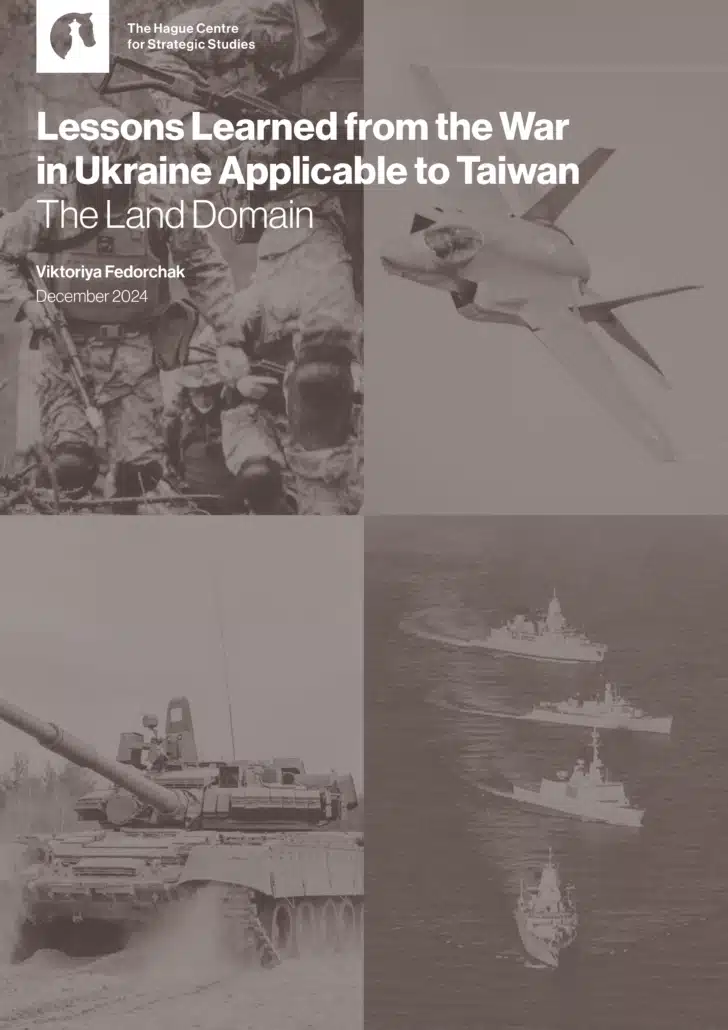
Paper 1 | Lessons Learned from the War in Ukraine applicable to Taiwan: The Land Domain
The war in Ukraine illustrates the use of various old and new techniques in warfighting, employing both Western cutting-edge and Soviet-era equipment. Different innovations and adaptations have been witnessed across domains. Although each war is unique, we can distil lessons about the ongoing trends in warfighting and the employment of new and old equipment.
This guest paper by Dr Viktoriya Fedorchak (Associate Senior Lecturer in War Studies, Department of War Studies, Swedish Defence University) explores the lessons that can be learned from the land domain, focusing on the relevance for the potential Taiwan–China conflict.
Paper 2 | Lessons for Taiwan from the Russo-Ukrainian War
Taiwan has faced threats from China for decades, but the risk of invasion has grown significantly since Xi Jinping’s rise to power. Russia’s 2022 invasion of Ukraine has reshaped global geopolitics, offering valuable lessons for Taiwan’s national security.
These lessons, however, must be adapted to Taiwan’s unique conditions, writes Dr. Jyh-Shyang Sheu (Institute for National Defence and Security Research) in this HCSS paper.
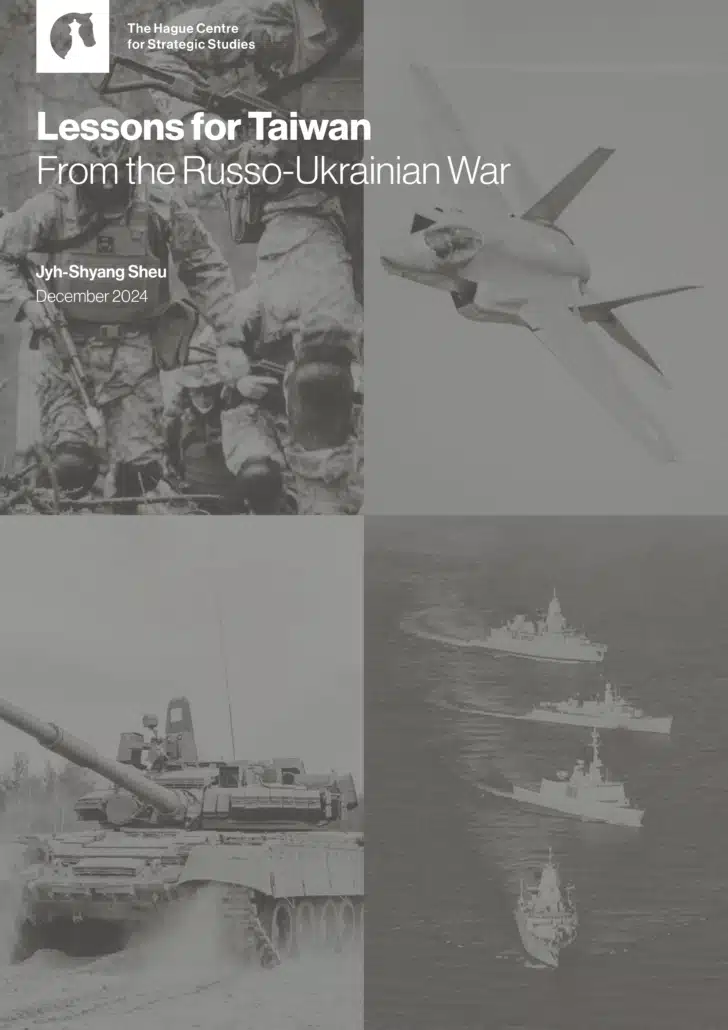
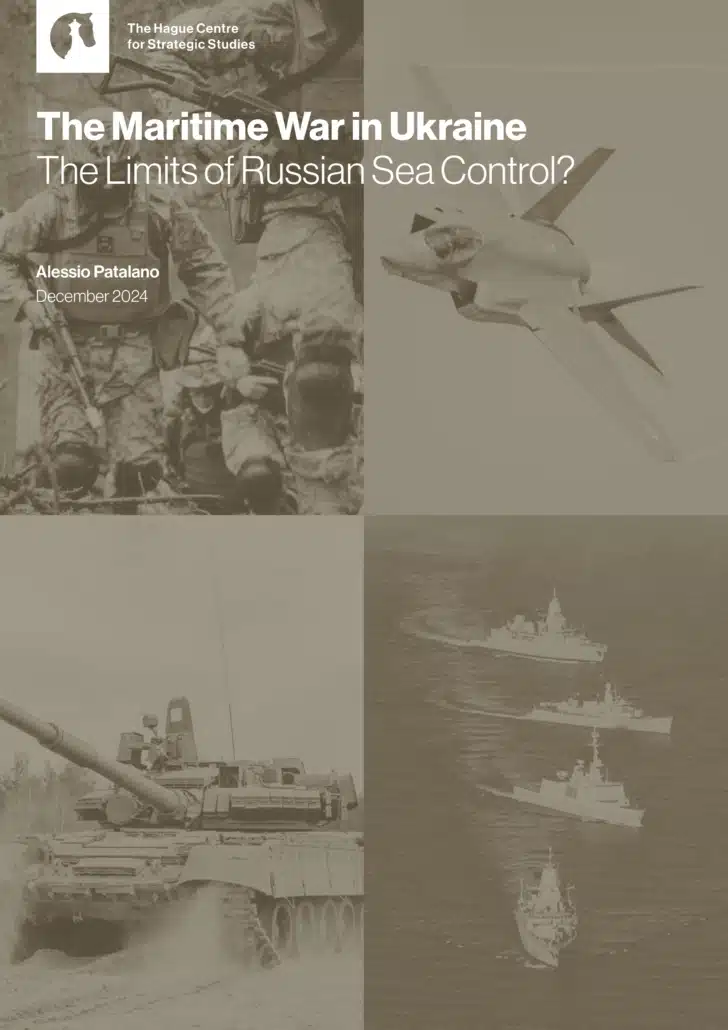
Paper 3 | The Maritime War in Ukraine: The Limits of Russian Sea Control?
At the onset of Russia’s full-scale invasion of Ukraine in February 2022, the Black Sea and the Sea of Azov were under firm Russian control. This narrative, however, quickly shifted, raising critical questions:
How did Russia lose its maritime edge against a country with virtually no navy?
How did Ukraine achieve such significant naval successes?
This paper by Prof. Alessio Patalano (Centre for Grand Strategy, King’s College London) explores these questions and reveals how Ukraine turned the tide in the naval dimension of the conflict.
Paper 4: Lessons Learned from the War in Ukraine applicable to Taiwan: Airpower
The war in Ukraine has underlined the importance of airpower in a contemporary conflict like never before. What lessons from that conflict can be learned and applied to a possible future conflict in and around the island of Taiwan?
This paper by HCSS strategic advisor Peter Wijninga will focus on the lessons for airpower, be it crewed or uncrewed, and ground-based air defence.
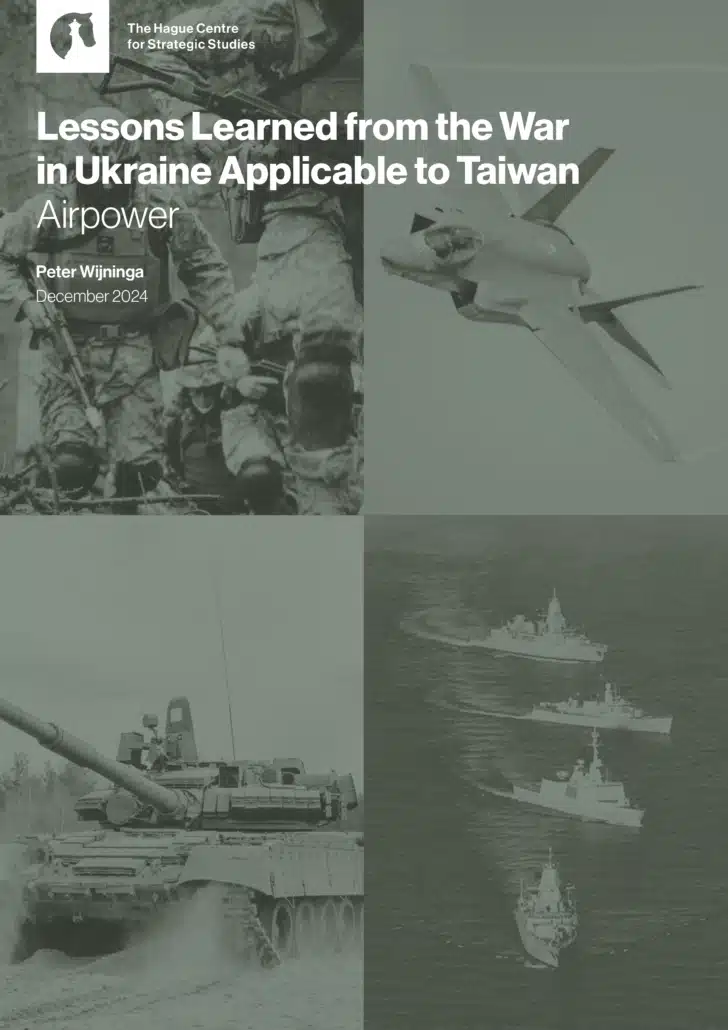
Main Report | From the Steppes of Ukraine to the Shores of Formosa: Lessons Learned from Contemporary War for Taiwan
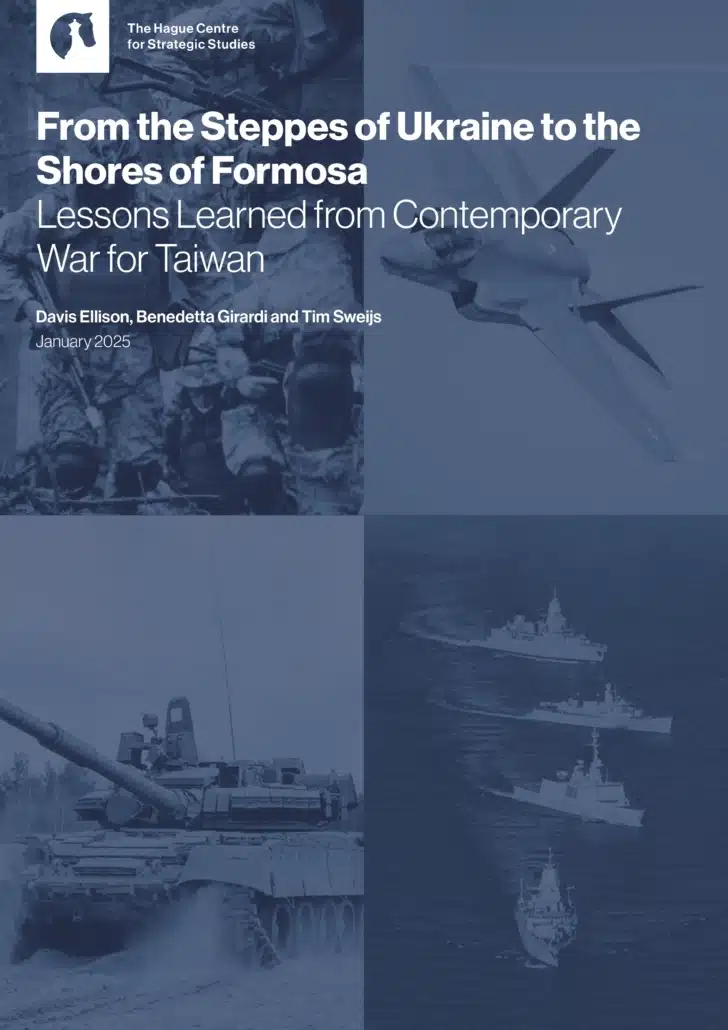
What lessons can Taiwan learn from the Russian war in Ukraine? A comprehensive new HCSS study by Davis Ellison, Benedetta Girardi and Tim Sweijs analyses Ukraine’s resistance against Russia, offering key insights for Taiwan’s defence strategy.
The report highlights the importance of asymmetric denial tactics, sustained resilience, and strategic deterrence to counter a potential Chinese invasion. Key recommendations include strengthening air and missile defence, enhancing naval strike capabilities, and improving intelligence networks.
By learning from Ukraine, Taiwan can bolster its defences and deter aggression.
The research of this paper series was made possible through a grant from the Taipei Representative Office in the Netherlands to the Hague Centre for Strategic Studies (HCSS).
Edited by Davis Ellison, Benedetta Girardi and Tim Sweijs.









